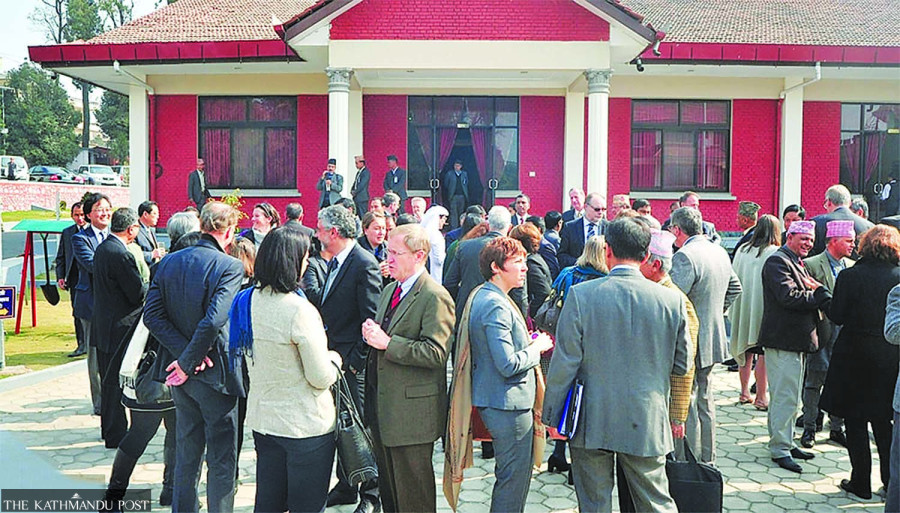National
Government reintroduces diplomatic code of conduct
Successive administrations have failed to enforce the code first introduced in 2011.
Post Report
The Pushpa Kamal Dahal government has reintroduced the diplomatic code of conduct that was unveiled in 2011.
A Cabinet meeting on Wednesday decided to enforce the diplomatic code of conduct and make it mandatory for all ministers to follow while meeting with foreign diplomats and representatives of foreign governments, should invite the officials of the foreign ministry, according to Deputy Prime Minister and Minister for Finance Bishnu Poudel.
The code first introduced in 2011 was widely praised by political, bureaucratic and the security apparatuses and even by some sections of Kathmandu’s diplomatic circle. Initially, only serving politicians and bureaucrats were within the code’s ambit.
It was revised in 2012 and a fresh draft was tabled in the Cabinet, which is yet to be implemented. A joint-secretary at the foreign ministry said that it never went into force and that the political leadership should be committed to implement it.
The original draft of the code was amended several times and broadened in 2013 and 2014, according to the officials. The DCC has been revised to bring the prime minister, ministers, top leaders of political parties, office bearers and incumbent and former government officials under its ambit.
As per the code, the aforementioned officials and leaders must obtain prior approval from the foreign ministry before meeting with foreign diplomats and officials. They are also required to brief the ministry on the meeting. The code also attempts to regulate political parties and ask them to set up a separate protocol section within the party for recording the contents of meetings as institutional memory of their organisations.
Parties also need to provide the details of their agenda while meeting with foreign dignitaries to the concerned government ministries, in case details are sought.
The DCC has also proposed designated venues for party leaders to hold meetings with foreign diplomats and dignitaries. However, this does not apply to courtesy and farewell calls. It also has provisions to curtail the frequent movements of diplomats and would be regulated on a regular basis.
Some political figures had expressed reservations over the content of the DDC during the premiership of the Sushil Koirala government in 2015.
“The DDC was again tabled in the Cabinet when Koirala was the prime minister but due to reservations from various sections, it was put on hold,” the joint-secretary added. “Successive governments tried to enforce the diplomatic code but they could not.”
Besides specifying the ways to conduct diplomatic meetings, the code also states how office bearers should present themselves at diplomatic meetings and functions.
The code makes it mandatory for even former prime ministers to inform the Ministry of Foreign Affairs before meeting ambassadors, diplomats and foreign leaders.
In 2020, when Oli was the prime minister, then-foreign minister Pradeep Gyawali also publicly announced that the government would revise the diplomatic code and make it compatible and friendly but without success.




 8.79°C Kathmandu
8.79°C Kathmandu














